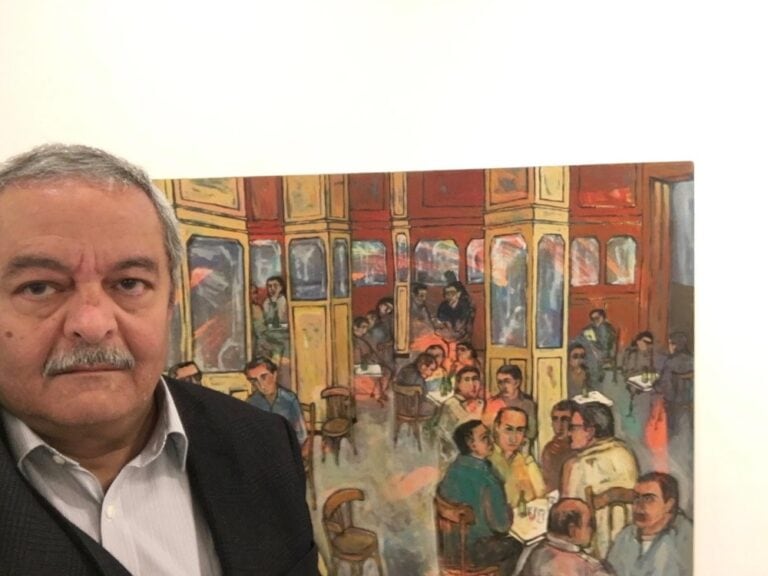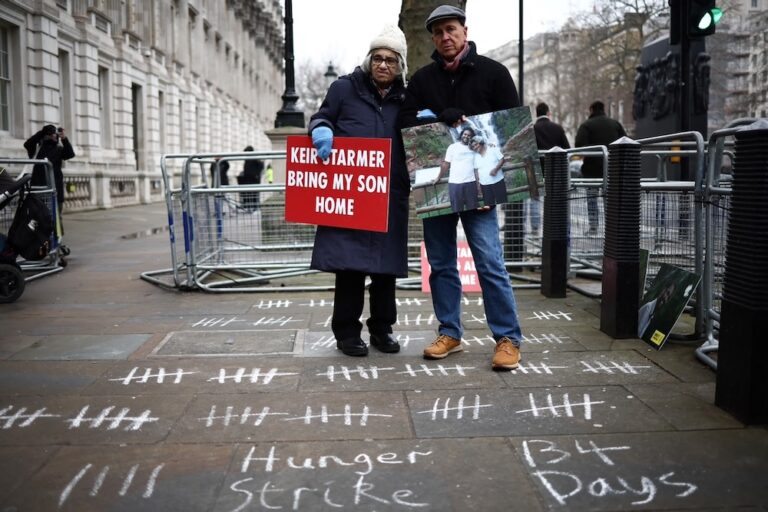The following is a 1 April 2000 CPJ press release: CPJ Condemns Imprisonment of Egyptian Journalists Editor, Reporter, and Cartoonist Receive Jail Terms of up to Two Years for Libeling Minister of Agriculture New York, April 1, 2000 -The Committee to Protect Journalists (CPJ), the New York-based press freedom watchdog, today condemned an Egyptian criminal […]
The following is a 1 April 2000 CPJ press release:
CPJ Condemns Imprisonment of Egyptian Journalists
Editor, Reporter, and Cartoonist Receive Jail Terms of up to Two Years for Libeling Minister of Agriculture
New York, April 1, 2000 -The Committee to Protect Journalists (CPJ), the New York-based press freedom watchdog, today condemned an Egyptian criminal court’s sentencing of three opposition journalists to prison terms of up to two years for libel.
Editor in chief Magdy Hussein, reporter Saleh Bedeiwi, and cartoonist Essam Hanafi, each of the opposition bi-weekly newspaper Al-Sha’b, were convicted on appeal of libeling Youssef Wali, the deputy prime minister and minister of agriculture. The charges against the three journalists were initially filed last year in response to a controversial series of articles and cartoons published in Al-Sha’b that criticized Wali’s allegedly treasonous agricultural cooperation with Israel. Among the
paper’s many accusations were that the minister had imported tainted seeds and fertilizers from Israel that led to increased rates of cancer among the population.
Hussein and Bedeiwi each received two year prison terms while Hanafi was given a one year sentence. The three journalists along with Adel Hussein, secretary general of the Socialist Labor Party which publishes Al-Sha’b, were fined 20,000 Egyptian pounds (5,900 dollars).
Hussein and Hanafi were taken into custody one hour after the verdict was pronounced and are expected to be transferred to Cairo’s Torah Mazraa Prison to serve their sentences. The whereabouts of Bedeiwi were unknown at the time of this writing. An editor at Al-Sha’b told CPJ that the newspaper will file an appeal tomorrow.
In the first trial last year, the South Cairo criminal court convicted the three journalists of libel on August 14 and sentenced them to two years in prison while imposing a fine of 20,000 Egyptian pounds. Both Hussein and Bedeiwi were imprisoned shortly after that verdict was announced. They were released four months later in December, after an appeals court ruled that they had not received a fair trial. Hanafi turned himself in a few days before the court decision and was released along with his colleagues.
Today’s court ruling follows a spate of jailings of Egyptian journalists for libel over the last two years. Since February 1998, 10 journalists have been sent to prison for libel. Magdy Hussein himself has gone to prison three separate times during that period.
“Egyptian authorities have shown once again their total disregard for basic press freedom guarantees,” said CPJ Executive Director Ann Cooper. “Simply put, journalists should never be thrown in jail for what they write.”
“Regrettably, President Mubarak continues to ignore repeated calls from Egyptian journalists and international NGOs to abolish the penalty of imprisonment for libel,” she added.
Egypt’s current press law, approved by Mubarak in 1996, stipulates prison sentences of up to two years for journalists convicted of defamation. Other articles of the penal code contain ambiguous proscriptions that can be used to haul journalists to court and subsequently prison. Dozens of Egyptian journalists currently face the prospect of imprisonment for published news and opinion in criminal cases that are currently pending in court or are under investigation.
On May 3, 1999, World Press Freedom Day, CPJ named President Mubarak one of the world’s 10 worst Enemies of the Press.
The Committee to Protect Journalists is a nonpartisan, nonprofit organization dedicated to the defense of press freedom everywhere.


